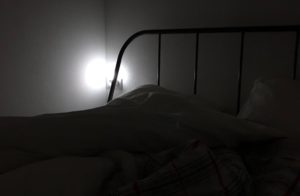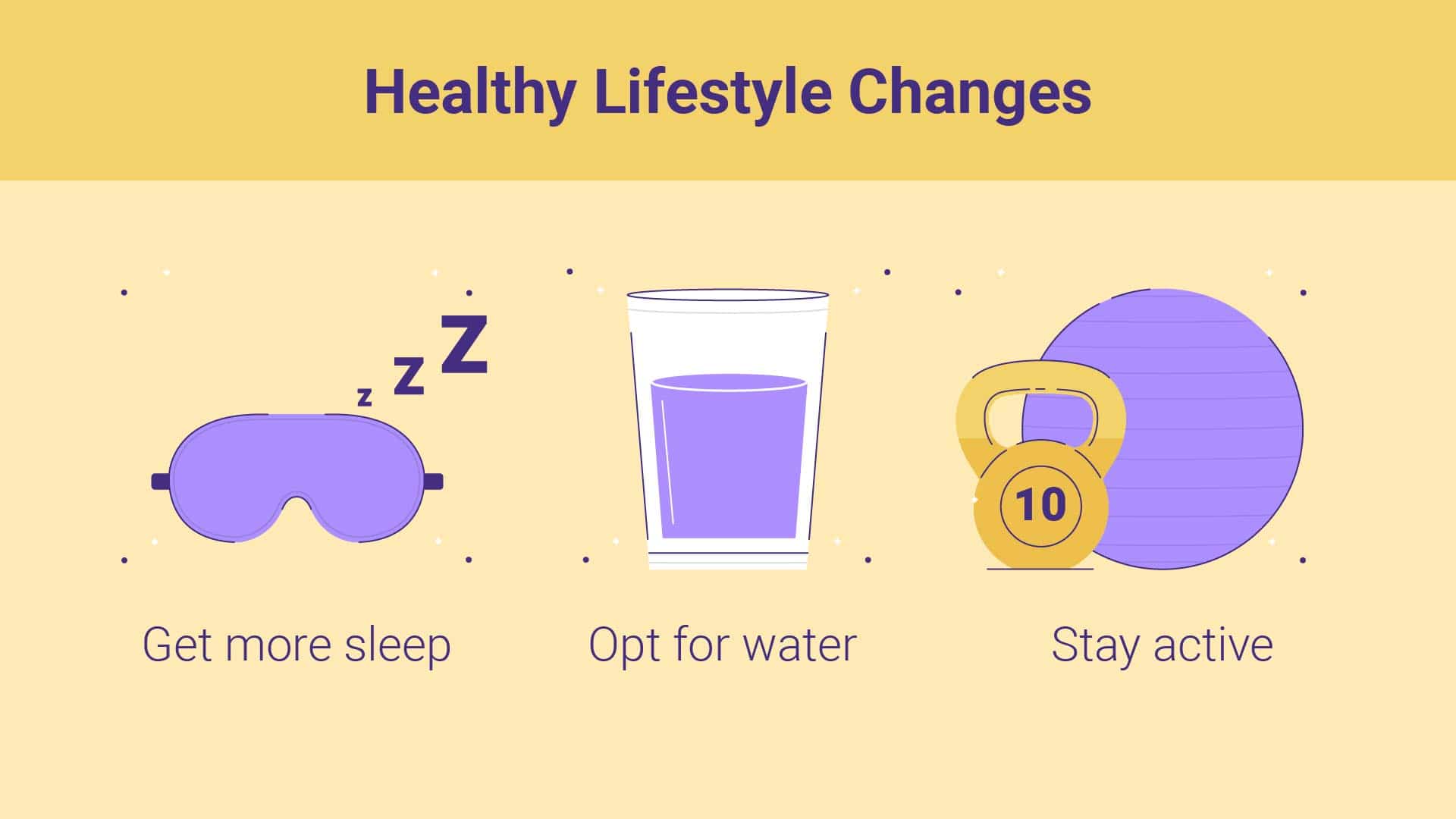How to Stop Grinding Your Teeth
Brian W. Wu, MD, PhD
Dr. Brian Wu earned his MD and Ph.D from the Keck School of Medicine (University of Southern California). His Ph.D. is in integrative biology and disease for his research in exercise physiology and rehabilitation. He is currently a psychiatrist in his residency at LAC USC.
- Bruxism, the habit of grinding or clenching teeth, can occur during the day or at night, and it is often associated with sleep disorders, stress, anxiety, or certain medical conditions.
- Symptoms of bruxism can include headaches, tooth wear and damage, jaw pain, trouble sleeping, and muscle tension in the neck and shoulders, among others. Left untreated, it can lead to various complications such as dental health problems and TMJ disorders.
- Treatment options for bruxism include lifestyle changes to reduce stress and muscle tension, the use of mouth guards or splints, and other medical solutions like teeth reshaping, hypnotherapy, and biofeedback.
Your neck and shoulders are tense all day long. Your jaw hurts. You have a dull headache and it won’t go away. Maybe you’ve been told you grind your teeth in the middle of the night.
If this sounds familiar, you might have bruxism and are looking for a solution. If you do have bruxism, you may wonder how to stop grinding your teeth and start sleeping better. To understand treatments for bruxism, let’s first look at the causes and symptoms of nighttime teeth grinding.
What Is Bruxism?
 Bruxism is when you grind or clench your jaw subconsciously. This can happen while you’re awake during the day, but more often it occurs at night. Because bruxism usually happens while you sleep, it can be difficult to prevent. Sleep bruxism is considered a sleep-related movement disorder.
Bruxism is when you grind or clench your jaw subconsciously. This can happen while you’re awake during the day, but more often it occurs at night. Because bruxism usually happens while you sleep, it can be difficult to prevent. Sleep bruxism is considered a sleep-related movement disorder.
How Common is Bruxism?
Bruxism is a relatively common movement disorder affecting nearly 8% of adults and one-third of children.
Why Do People Grind Their Teeth?
People who grind their teeth at night often have sleep disorders, but teeth grinding can be a result of stress and anxiety, too. Obstructive sleep apnea and snoring can cause you to grind your teeth, as well. According to the Mayo Clinic, other risk factors for bruxism include:
- Personality. If you’re hyperactive or competitive, you may be more likely to grind your teeth at night.
- Medications. Bruxism is a side effect of some prescription medications.
- Genetics. If you have family members who grind their teeth, you’re more likely to have bruxism too.
- Abnormal bite. Misaligned or missing teeth can cause bruxism.
- Medical conditions. Parkinson’s disease, dementia, gastric reflux, hyperactivity disorder, and epilepsy are linked to bruxism.
Is Grinding Teeth a Sign of Autism?
Individuals with autism are often afflicted with a range of medical and behavioral disorders; and bruxism, otherwise known as forceful grinding of the teeth, is just one of them.
Children can grind their baby teeth but stop as soon as the adult teeth start growing. If a child continues grinding the teeth even after the adult teeth come, they should be taken to a specialist.
For children with autism, teeth grinding is a method of self-soothing. Repeating various motor activities over and over again, such as teeth grinding, can promote a sense of calm for children who are otherwise prone to more stressful or difficult emotions. To prevent this, one can consult a physician to find out other activities for the child that are less harmful.
“Emotions fire up the amygdala in our brain’s,” says Dr. Brian Wu, psychiatrist. “ Once activated it is common for sleep deprivation to occur. Learning self-care, cognitive behavioral techniques and emotional releases can bring our minds into neutral.
Symptoms of Bruxism
Like other sleep-related movement disorders, it can be hard to diagnose bruxism because it occurs while you’re asleep. You often need to piece clues together to figure out if you’re grinding your teeth at night. According to the NHS, most people do not know they are suffering from bruxism because they do not know the symptoms. These are common symptoms of bruxism.
- Headaches. These headaches are often around your temples or jaw.
- Tooth problems. Your teeth may be small and flat from tooth wear. They may chip or even feel loose. Enamel wears down over time, causing sensitivity and tooth pain. Dental damage is permanent and expensive to repair.
- Jaw pain. Bruxism causes soreness in the jaw. Muscles may feel tight and the jaw joint can lock. Jaw and facial pain are among the most common signs of bruxism.
- Trouble sleeping. You may suffer from insomnia. Or you might need a new, top-rated mattress.
- Earaches. This could be related to teeth grinding because your temporomandibular joint is close to the ear canal.
- Muscle tension in the neck and shoulders. Bruxism can cause facial muscles to be sore.
What Are the Side Effects of Clenching Your Teeth?
If you grind your teeth at night, it’s important to find a solution that works for you. Bruxism may not seem like a serious problem, but it can impact your quality of life when left untreated.
Besides muscle tension, headaches, and a sore jaw, Medline Plus links bruxism to the following complications:
- Depression. When you don’t sleep well and have pain throughout the day, your mood can be affected.
- Insomnia. Bruxism can keep you from enjoying a deep sleep. Like sleep apnea, sometimes you don’t even realize this is occurring.
- Dental health problems. Teeth grinding puts you at higher risk for tooth fractures and chipping. Wearing down tooth enamel causes sensitivity to hot, cold, and sweet foods. Bruxism can also cause your gums to recede; this can lead to a whole host of oral health issues.
- TMJ disorders. Tension in the jaw caused by clenching and grinding can lead to TMJ.
How to Stop Grinding Teeth: The Best Ways to Treat Bruxism
No matter what the cause, there are several solutions to help you stop grinding your teeth at night. Some remedies are lifestyle changes to reduce stress and tension, while others involve improving sleep hygiene. These treat the underlying cause of bruxism. If those remedies don’t offer any relief, try targeting the act of teeth grinding itself.
To stop grinding your teeth at night, try one or more of the following remedies.
Ease Muscle Tension
Tooth grinding and muscle tension can be a vicious cycle. Muscle tension can cause you to grind your teeth, and grinding your teeth can cause tense muscles. To break the cycle, it may help to reduce muscle tension in your jaw. Here are some easy ways to do it:
- Try a compress on your jaw. A washcloth soaked in warm water works well.
- Talk to a physical therapist or TMJ specialist. They can teach you stretches and exercises to loosen tight jaw muscles.
- Give yourself a massage. Target your neck, shoulders, and jaw.
- Stop daytime jaw clenching. If you find yourself clenching your jaw during the day, make it a habit to notice it. Consciously relax your face, neck, and shoulder muscles.
- Try using a mouthguard. Using a mouth guard will reduce the feeling of grinding your teeth. It will also protect your teeth.
- Take a warm bath before bedtime. The heat will help release tension throughout your body. If you have Epsom salt, add it to the tub––the magnesium in it soothes sore muscles.
- Avoid excessive chewing during the day, when possible. This means skipping chewing gum and chewy foods like candy.
Reduce Stress
Decreasing stress and anxiety is easier said than done. However, it’s a low-cost remedy for bruxism––and it can impact your overall well-being too. Many of the tips listed above for easing muscle tension can also reduce stress.
Progressive relaxation is another solution to reduce mental stress and physical tension. You can find apps and videos online to help you get started. Once you follow along a few times, you should be able to do it yourself without listening to a recording.
Lifestyle Changes
Leading a healthy lifestyle can help you sleep better and stop grinding your teeth at night. This includes:
- Opting for water instead of coffee. Staying hydrated is important for your health and avoiding caffeine helps stop bruxism.
- Get the sleep you need. For most adults, this equates to 7-9 hours a night. If you don’t wake up feeling well-rested, allow yourself more time to sleep by going to bed earlier.
- Stay active. Sleep experts recommend exercise as a way to reduce stress and improve rest.

Try a Splint or Mouth Guard
Want to know how to stop grinding teeth another way? Try a splint or mouth guard from your doctor or dentist.
Store-bought boil-and-bite night guards are an option too. However, these DIY mouth guards may not be as comfortable or as effective as those made by a dentist.
Splints and mouth guards do not treat the underlying cause of bruxism. Still, they are one of the best ways to stop it. They fit over your upper or lower teeth to keep them separated. When teeth are physically unable to grind together, they’re protected from damage.
Splints and night guards may also help with muscle tension.
Other Medical Solutions
Splints and mouth guards are the most common medical treatment for nighttime teeth grinding. There are other options available when those don’t work. Some may be prescribed by a doctor or dentist. Others require consultation with a specialist. These treatments include:
- Teeth reshaping. When bruxism is caused by misaligned or misshapen teeth, a procedure called reductive coronoplasty can help.
- Hypnotherapy. A trained hypnotherapist can use suggestive hypnotherapy to reduce bruxism. Case studies of this treatment have been small but promising.
- Biofeedback. Biofeedback therapy uses electrical sensors to help train you to control different functions of your body. There is also evidence that biofeedback can be useful in stopping teeth grinding, but research is not conclusive.
How to Stop Grinding Teeth and Start Sleeping Better
Teeth clenching and grinding is not only an annoying habit. It’s a sleep disorder linked to various health issues.
If you have bruxism, you may experience headaches, jaw pain, muscle tension, and dental problems. You may also have difficulty sleeping through the night.
Fortunately, there are many ways to stop grinding your teeth. Some of these are lifestyle changes. These tackle the root cause of bruxism. There are also other remedies to prevent the physical act of grinding your teeth.
Usually, a combination of treatments is needed to stop nighttime teeth grinding permanently. The good news is, most solutions are affordable, effective, and long-lasting.
